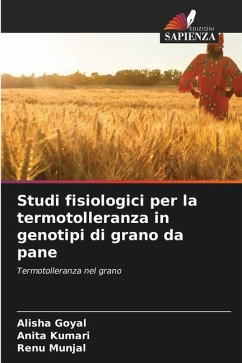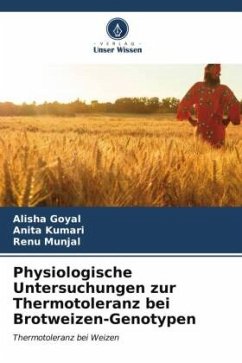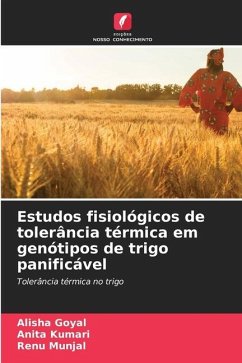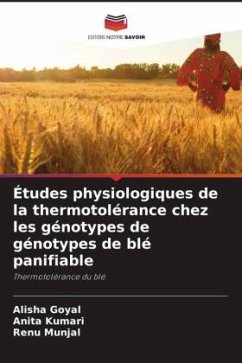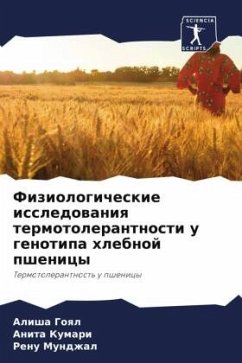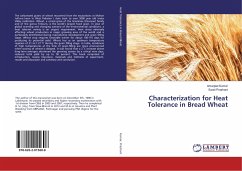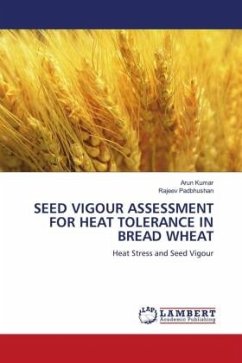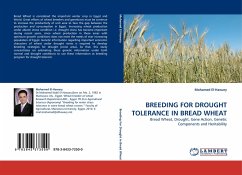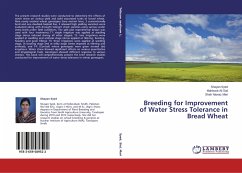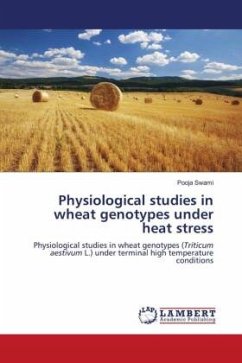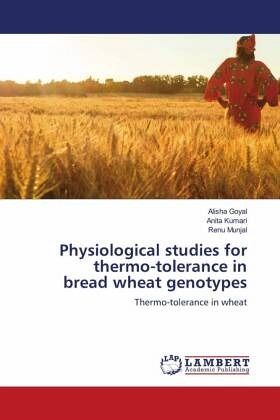
Physiological studies for thermo-tolerance in bread wheat genotypes
Thermo-tolerance in wheat
Versandkostenfrei!
Versandfertig in 6-10 Tagen
40,99 €
inkl. MwSt.

PAYBACK Punkte
20 °P sammeln!
Wheat belongs to family Poaceace commonly known as the grass family. It is grown in Rabi season and it has been identified as the 'King of Cereals' because of its cultivation on a very large area. Abiotic constraints such as high temperature, low temperature, drought, salinity and high concentrations of toxic metals have restrained the crop production. Among these stresses, high temperature stress has caused a great concern as the global air temperature is predicted to rise by 0.2 °C per decade. Wheat is a winter season crop and rotation patterns lead to its late sowing in month of December/J...
Wheat belongs to family Poaceace commonly known as the grass family. It is grown in Rabi season and it has been identified as the 'King of Cereals' because of its cultivation on a very large area. Abiotic constraints such as high temperature, low temperature, drought, salinity and high concentrations of toxic metals have restrained the crop production. Among these stresses, high temperature stress has caused a great concern as the global air temperature is predicted to rise by 0.2 °C per decade. Wheat is a winter season crop and rotation patterns lead to its late sowing in month of December/January. Optimum temperature for growth of wheat is 18-24°C but if there is an exposure of high temperature i.e. 28-32°C even for a short period (5-6 days), it causes a 20% or more reduction in yield. Currently various strategies are being applied to increase thermo- tolerance in wheat plants. Developments of thermo-tolerant varieties of wheat are one of the major steps toward yield improvement of wheat. So, to meet the requirements, there will be a need to produce the double production from the present level, to feed the 950 million people by 2050.



